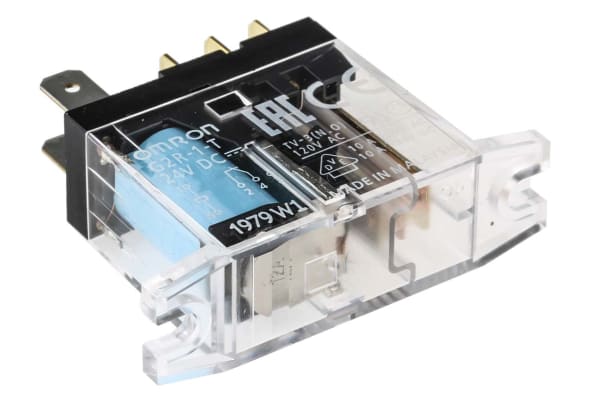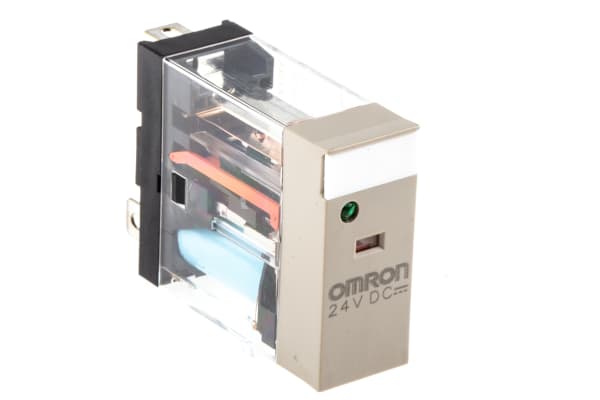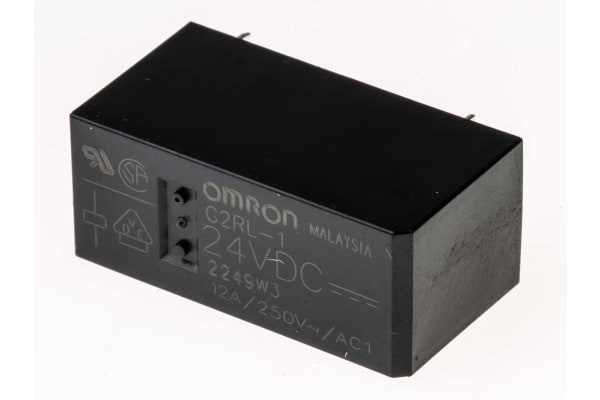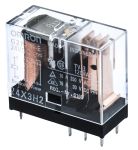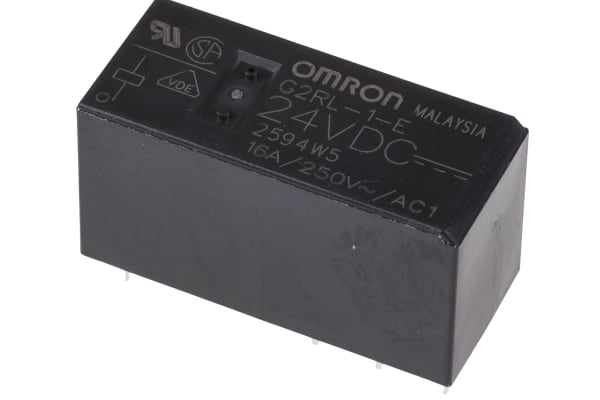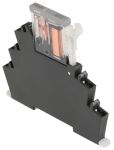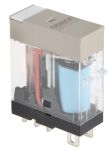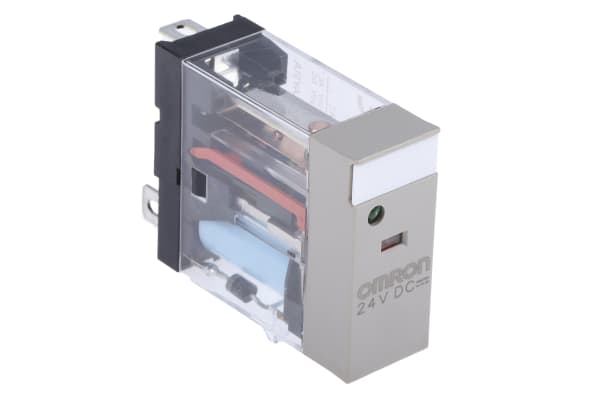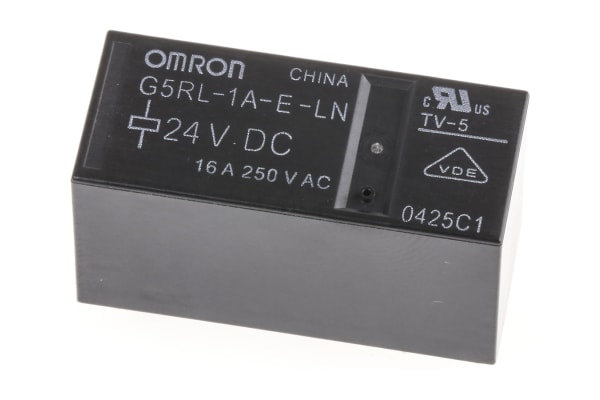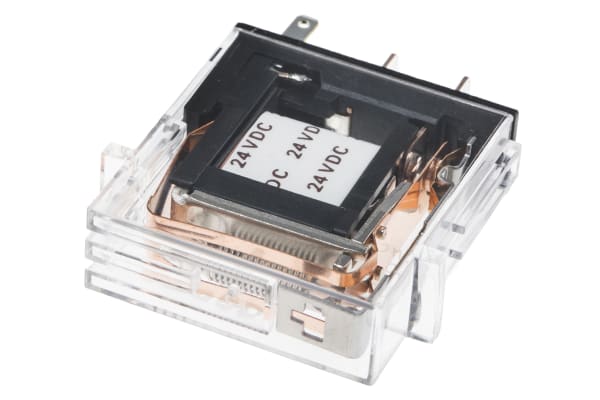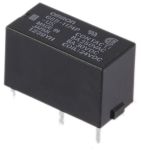Non-Latching Relays
Relays are electrical switches that are operated by electrical impulses with the primary function to open and close a circuit, they can also be referred to as industrial switches. There are 2 main types available, latching and non–latching relays.How do non-latching relays work?Non-latching relays are in a normally closed (NC) position and will stay in this state without power. When power passes through the circuit, the relay switched to a normally open (NO) position by using an internal coil to generate a magnetic force, holding this NO position. Once the current is turned off, it returns to the NC position. This makes non-latching relays well suited to push-button applications like keyboards and micro-controller input buttons.What are non-latching relays used for?Non-latching relays are highly durable and versatile components, making their performance long lasting and suitable for use in a wide range of applications, such as:Automotive enginesHousehold appliancesIndustrial machineryMedical equipmentTelecommunications equipmentWhat is the difference between latching and non-latching relays?Both types of relays in similar in design and function, however, a significant difference between them is that a latching relay will remain in the last position it when it was last powered, whereas a non-latching goes back to its normal position. This makes each more type of relay suitable for different applications. Considerations when selecting a relayWhen choosing a relay, it is important to consider a number of specifications to ensure it is fit for purpose, some factors include:Coil voltage – the required voltage to actuate the switching mechanism. If a voltage is too high this could damage the components, if it is too low then it will not actuate. Contact configuration – This is the state the contacts are in without power. For example SPST, single pole single throw.Contact material – the relay contacts are available in many materials that have certain properties. Common materials are gold, silver, tin oxide and nickel Coil power – the amount of power (watts) the coil operates at. This must match the power in the circuit for correct function. Coil resistance – the amount of resistance (ohms) in the circuit that the coil creates.
-
Omron, 24V dc Coil Non-Latching Relay DPDT, 8A Switching Current PCB Mount, 2 Pole, G2RL-2 24DC
IDR60,101.97 -
Omron, 24V dc Coil Non-Latching Relay DPDT, 8A Switching Current PCB Mount, 2 Pole, G2RL-24-CF-DC24
IDR79,506.62 -
Omron, 24V dc Coil Non-Latching Relay DPNO, 25A Switching Current Panel Mount, 2 Pole, G7L-2A-T 24DC
IDR177,893.44 -
Omron, 24V dc Coil Non-Latching Relay DPST, 5A Switching Current PCB Mount, 2 Pole, G6B2014PUS24DC
IDR114,330.10 -
Omron, 24V dc Coil Non-Latching Relay SPDT, 10A Switching Current Panel Mount Single Pole, G2R-1-T DC24
IDR54,962.36 -
Omron, 24V dc Coil Non-Latching Relay SPDT, 10A Switching Current PCB Mount Single Pole, G2R-1 24DC
IDR58,004.17 -
Omron, 24V dc Coil Non-Latching Relay SPDT, 10A Switching Current Plug In Single Pole, G2R-1-SN 24DC(S)
IDR244,079.03 -
Omron, 24V dc Coil Non-Latching Relay SPDT, 10A Switching Current Plug In Single Pole, G2R-1-SNDI 24DC(S)
IDR184,081.95 -
Omron, 24V dc Coil Non-Latching Relay SPDT, 12A Switching Current PCB Mount Single Pole, G2RL-1 24DC
IDR34,089.25 -
Omron, 24V dc Coil Non-Latching Relay SPDT, 16A Switching Current PCB Mount Single Pole, G2R-1-E 24DC
IDR87,583.15 -
Omron, 24V dc Coil Non-Latching Relay SPDT, 16A Switching Current PCB Mount Single Pole, G2RL-1-E 24DC
IDR49,822.75 -
Omron, 24V dc Coil Non-Latching Relay SPDT, 16A Switching Current PCB Mount Single Pole, G2RL-14-E 24DC
IDR63,143.78 -
Omron, 24V dc Coil Non-Latching Relay SPDT, 1A Switching Current PCB Mount Single Pole, G5V-1 24DC
IDR34,718.59 -
Omron, 24V dc Coil Non-Latching Relay SPDT, 6A Switching Current DIN Rail Single Pole, G2RV-SR500 DC24
IDR231,387.34 -
Omron, 24V dc Coil Non-Latching Relay SPDT, 6A Switching Current DIN Rail Single Pole, G2RV-SR700 DC24
IDR315,509.12 -
Omron, 24V dc Coil Non-Latching Relay SPDT, 6A Switching Current Plug In Single Pole, G2R-1-S 24DC(S)
IDR146,111.77 -
Omron, 24V dc Coil Non-Latching Relay SPDT, 6A Switching Current Plug In Single Pole, G2R1SND24DCS
IDR196,668.75 -
Omron, 24V dc Coil Non-Latching Relay SPDT, 8A Switching Current PCB Mount Single Pole, G6RN-1 24DC
IDR76,359.92 -
Omron, 24V dc Coil Non-Latching Relay SPNO, 15A Switching Current PCB Mount Single Pole, G5CA-1A-E DC24
IDR58,423.73 -
Omron, 24V dc Coil Non-Latching Relay SPNO, 16A Switching Current PCB Mount Single Pole, G2RL-1A4-E 24DC
IDR50,871.65 -
Omron, 24V dc Coil Non-Latching Relay SPNO, 16A Switching Current PCB Mount Single Pole, G5RL-1A-E-LN DC24
IDR75,206.13 -
Omron, 24V dc Coil Non-Latching Relay SPNO, 5A Switching Current PCB Mount Single Pole, G6B-1114P-US-SV 24DC
IDR129,224.48 -
Omron, 24V dc Coil Non-Latching Relay SPNO, 5A Switching Current Plug In Single Pole, G7T-1112S-DC24V
IDR188,592.22 -
Omron, 24V dc Coil Non-Latching Relay SPNO, 8A Switching Current PCB Mount Single Pole, G6B-1174P-US 24DC
IDR90,520.07







